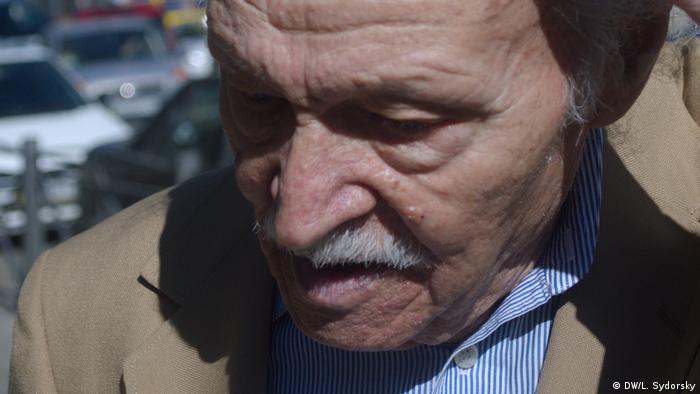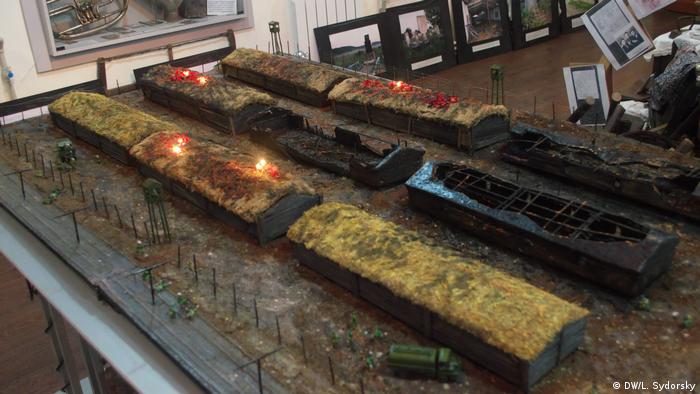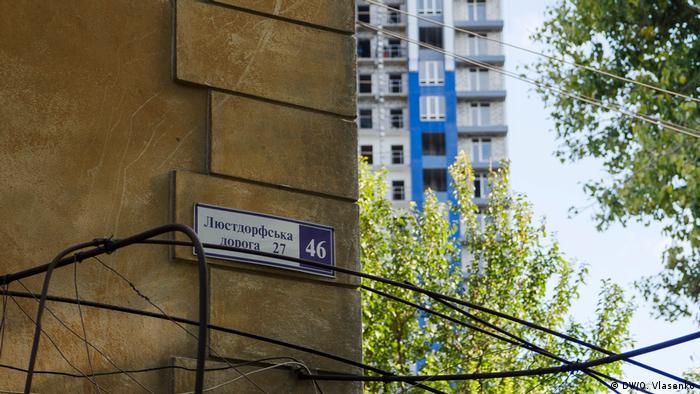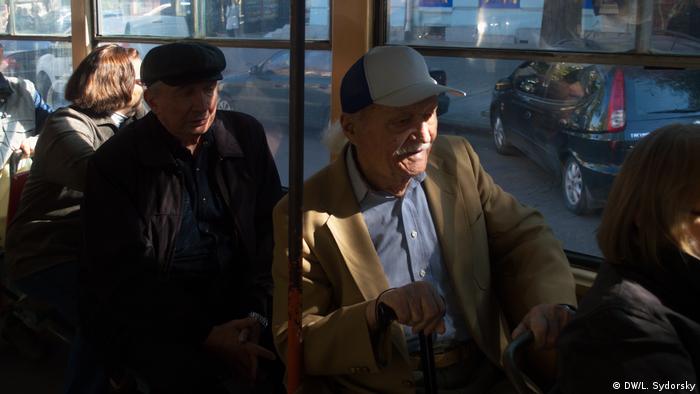He was a witness to the massacre of Odessa and survived himself. Mikhail Zaslawskys family, however, came in the flames died. In a DW interview, the 93-Year-old talks about his memories.

Mikhail Zaslawsky is sixteen, as his home city of Odessa, the cosmopolitan metropolis on the Black sea, in October 1941 by Romanian and German troops occupied. In the case of a bomb attack on the headquarters of the Nazis on 22. October die 67 tamper. Now revenge is being practiced: For each German or Romanian officer 200 “Bolsheviks must die,” for every soldier 100. Only in Odessa there is no “Bolsheviks” more, actually, hardly any men. The revenge perpetrated on the Jewish population, mainly women and children. You pack them in the former munitions warehouse on the outskirts of the city, you will be shot or burned.
Mikhail Zaslawsky, the last Survivor of the massacre of Odessa, spoke with Deutsche Welle about his memories.
DW: Mikhail Aleksandrovich, how did you experience the events of October 1941? (Editor’s note. d. Red: In Russia it is considered to be polite, To be not with the surname, but the father’s name.)
Mikhail Zaslawsky: I’m a native of Odessa, and love my city. That’s why I was involved, like all adolescent boys in August/September 1941 in the defense of Odessa: We built barricades, by paving stones of the road dug, we brought not destroyed houses in order, so they came down, we helped the wounded out. 16. October was a black day: The squatters arrived in our city. I belong to the Jewish nationality, my father, my mother and all the ancestors were Jews.
19. October 1941 was a fascist Romanian officer in our house, two soldiers and a Ukrainian interpreter, and translated: “Jews, pack it up – you have 20 minutes!” My mother grabbed what she could. When we came out, all the neighbors of the house at the gate.
I looked around me, at each gate, neighbors from other houses: the guys with whom I had played football, I grew up with, people I saw every day, I greeted or not, neighbor, with whom you were friends or enemies were. All of these people, the silent question in the face which is Why is written:”?”
What happened next?
We were brought to the school No. 121, which was a new school with four floors. They were kept there for us until the Morning. The next day we were driven under the dog barking and the piston blows on the old Portofrankskaja-road all together to prison.

A model of the ammunition storage in the Holocaust Museum in Odessa, reconstructed the crime
On both sides of the street, the inhabitants, were my comrades, classmates, their parents, who could not help, were also amazed. But there were also those rags that came in, cracks a the of Luggage, Hand – bags, with the things of the catering.
They drove us to the prison. Locked us up, 16 people together in a cell that was meant for one to two people, completely at random, all mixed, women, Old people or children. We were not allowed to the toilet, not going anywhere. We have all – sorry – had to drain right there, and I was a young guy, 16, and there were young women with small children, which was terribly embarrassing. A corner was partitioned off with a piece of canvas, an old pot was… I don’t want to tell.
22. October 16 at the military headquarters was blown up on the Maraslijewskaja in the air. There were a hundred fascists, as we learned later, including as commander of the city Ion Glogojanu. Of course, the Jews were to blame. And the next Morning we were driven then to the ammunition storage.
Did you know of the Explosion?
Yes, someone told it. As soon as we arrived at the ammunition storage – I wore my five-year-old brother on the Arm tore him to me immediately from the shoulder, and I got a terrible blow in the back, I do not know whether with the feet or with a rifle, and a baton – one of them threw me, where men and Old, even half-grown. We came all the way back to the last warehouse building. My mother and my siblings, I was the oldest of Five, landed in another barracks.
After some time, I heard the buzz of a Motor. A car came, and everything was showered with gasoline or a fuel and ignited. After some time, when all the fire had caught, blew on the edge of the building, and a hole was formed. I rushed through this hole.
I was, as I said, young and athletic, and I was fighting for my life. I came out, and also behind the Barrier, it was not as a Barrier like in the concentration camps, no barbed wire, but simply a fence. As I slipped through and ran. I heard, as of now, the machine gun went off from the watch tower.
I heard the screams. I heard as the body fell, hit the ground. I heard the steps. I turned around and saw that the other memory is burned, as flames reached up into the sky. When I ran across a corn field, and the pistons were already harvested and only the stubble were there, I snaked me through it, and came to a reforestation. There I fell, breathless, as they say.
I lay there until the evening. And in the evening I hit gardens by the vegetables, the “buttocks” as they are called in the Odessa – because I knew my town well, I was a Boy, the stromerte around everywhere. Store through the alley that leads to pleasure the village street, the Ammunition, I came to the Polish cemetery and climbed over the wall, that’s where I spent the night.

The tragedy has an address: Lustdorf road 27 (now 46)
Directly to the cemetery?
In the cemetery, in a crypt. I stayed the day in the tomb, without food, without water, and the next night I went to the city – on the carriage of the train station, who is born in Odessa, knows that, there’s the tram number 3 drove, it was a dead station.
But what I experienced during the occupation, in the following two and a half years, you can’t tell in two minutes. I was submerged, lived under a foreign name, I had to pull the trigger papers of the Romanian police with my photo and even with my finger. Two And A Half Years. 10. April 1944 was liberated Odessa and on 11. I was in the army.
Whom have you lost in the flames of the ammo rack?
My sister Eva, 12 years old, and another sister, Zhenya, 9 years old, my little brother Ilya, I had to wear. And my mother wore, the little Anna on the Arm. All of them are burned. You have been to ash. It is said that there could be felt for many days to the smell of burnt bodies.

To the place where his family was killed, “uncle Misha,” as Zaslawsky in Odessa is called, still with tram number 3.
You will be returned to the place where all this happened?
Yes, I am. But the monument we have erected, the Association of former concentration camp prisoners, only recently. I am, however, going every year since.
Now residential, there are houses, garages, vegetable gardens, children’s play, waste is discharged. Is it not a sacrilege?
No, the living, this is normal. It is important not only that such a thing is not repeated. The memory is more important than monuments.
They went at the first opportunity on the Front. With A Thirst For Revenge?
At the beginning of wrath and indignation were there, Yes. I was a meritorious soldier, let’s say. But you can’t hate his whole life long. The time erases the pain, it’s other come. I have two children, three grandchildren and four great-grandchildren. I’m telling you this as a family tragedy, but for you that’s all history, they are far from it.
The conversation Anastassia Boutsko.